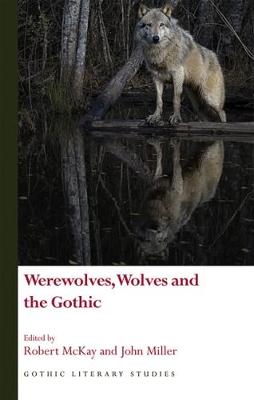Gothic Literary Studies
1 total work
Werewolves, Wolves and the Gothic
Published 15 September 2017
Wolves lope across Gothic imagination. Signs of a pure animality opposed to humanity, in the figure of the werewolf they become liminal creatures that move between the human and the animal. Werewolves function as a site for exploring complex anxieties of difference – of gender, class, race, space, nation or sexuality – but the imaginative and ideological uses of wolves also reflect back on the lives of material animals, long persecuted in their declining habitats across the world. Werewolves therefore raise unsettling questions about the intersection of the real and the imaginary, the instability of human identities and the worldliness and political weight of the Gothic.
This is the first volume concerned with the appearance of werewolves and wolves in literary and cultural texts from the mid-nineteenth century to the present. Drawing on representations of werewolves and wolves in literature, film, television and visual culture, the essays investigate the key texts of the lycanthropic canon alongside lesser-known works from the 1890s to the present. The result is an innovative study that is both theoretically aware and historically nuanced, featuring an international list of established and emerging scholars based in Britain, Europe, North America and Australia.
This is the first volume concerned with the appearance of werewolves and wolves in literary and cultural texts from the mid-nineteenth century to the present. Drawing on representations of werewolves and wolves in literature, film, television and visual culture, the essays investigate the key texts of the lycanthropic canon alongside lesser-known works from the 1890s to the present. The result is an innovative study that is both theoretically aware and historically nuanced, featuring an international list of established and emerging scholars based in Britain, Europe, North America and Australia.
